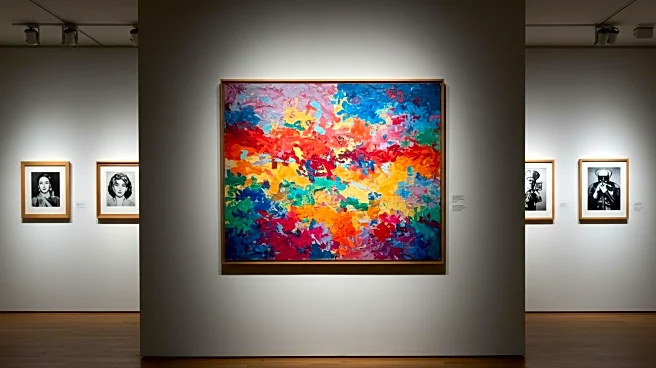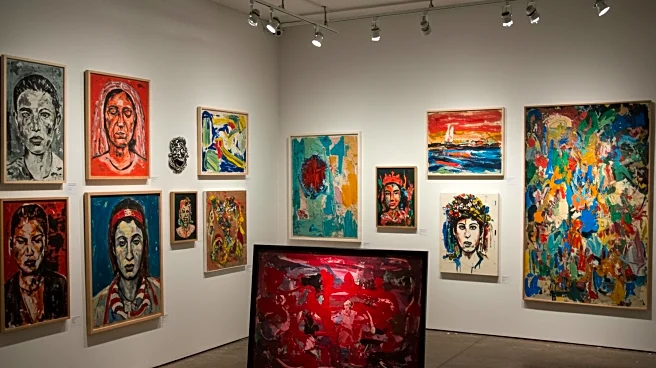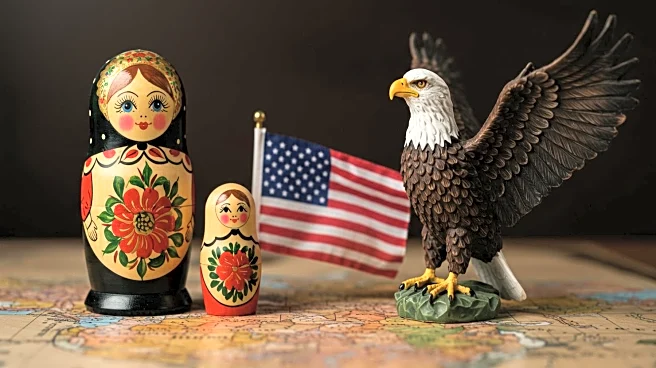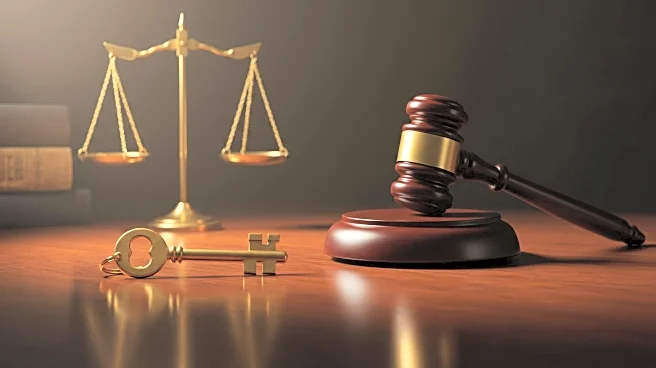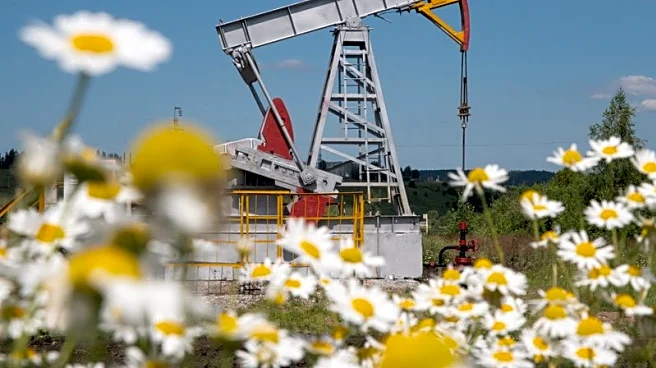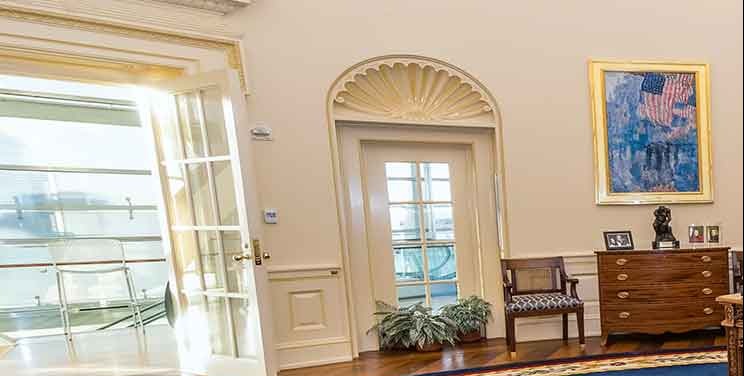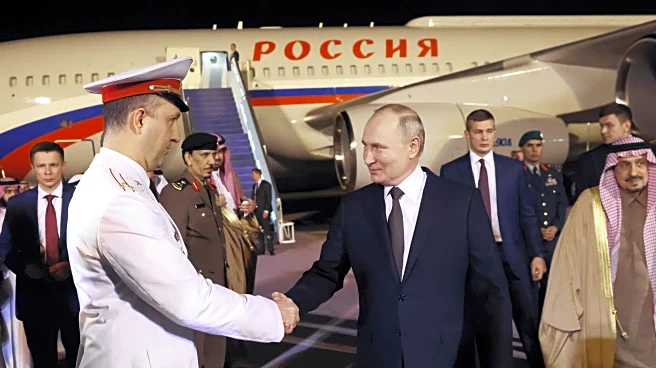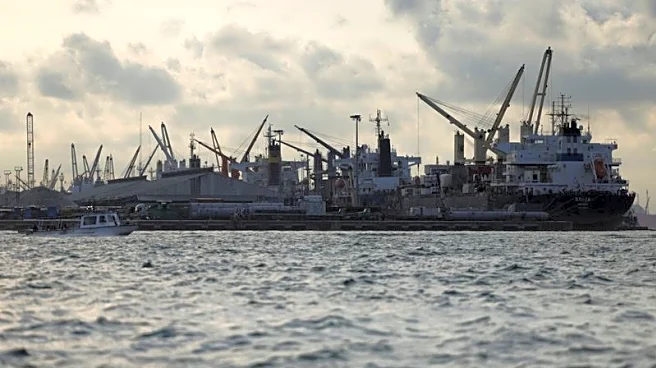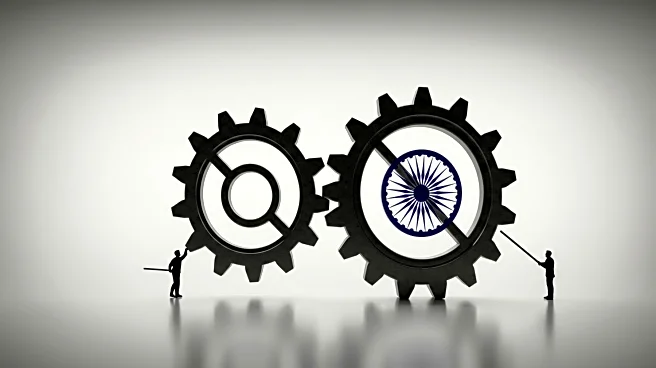What's Happening?
A Bangkok art exhibition curated by Burmese artist Sai and his wife faced censorship after drawing the ire of the Chinese government. The exhibition, titled 'Constellation of Complicity: Visualising the Global Machine of Authoritarian Solidarity,' featured works by exiled artists from China, Russia, and Iran, aiming to highlight authoritarian repression. Chinese embassy representatives, accompanied by Bangkok city officials, visited the exhibition shortly after its opening, demanding the removal of artworks by Tibetan, Uyghur, and Hong Kong artists. The arts center negotiated a compromise, allowing the exhibition to continue with sensitive elements removed. The censorship included blacking out artists' names and covering references to Tibet, Hong Kong, and Xinjiang. The couple has since fled to the UK, fearing deportation to Myanmar, where Sai believes he would face persecution.
Why It's Important?
The incident underscores the reach of China's influence beyond its borders, particularly in cultural and artistic spheres. It raises concerns about transnational repression and the ability of authoritarian regimes to suppress dissent internationally. The censorship of the exhibition highlights the challenges faced by artists and activists in expressing their views on sensitive political issues. This development may impact diplomatic relations between Thailand and China, as well as the broader discourse on freedom of expression and cultural sovereignty. The situation also reflects the precarious position of exiled artists and activists who seek to challenge authoritarianism.
What's Next?
The couple plans to seek asylum in the UK, highlighting the ongoing risks faced by those opposing authoritarian regimes. The incident may prompt further scrutiny of China's influence in Thailand and other countries, potentially leading to diplomatic discussions on cultural sovereignty and freedom of expression. Human rights advocates may increase pressure on governments to protect artists and activists from transnational repression. The arts center's management and Thai authorities may face calls for transparency regarding their interactions with Chinese officials.
Beyond the Headlines
The censorship of the exhibition raises ethical questions about the role of cultural institutions in navigating political pressures. It also highlights the broader issue of how authoritarian regimes use cultural diplomacy to advance their political agendas. The incident may contribute to a growing awareness of the need to safeguard artistic freedom and resist external influences that threaten cultural expression.
